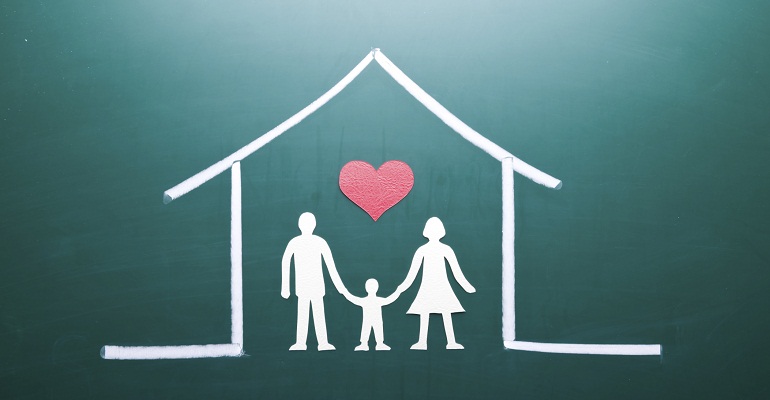1. It’s important that kids know it’s okay not to answer questions. Parents can model this when a friend or stranger intrudes with a question. A calm “I don’t care to discuss it” is fine. When my daughter was asked why she didn’t have a dad, an option would have been to say, “That’s just the way our family is.” There’s no need to go into detail.
2. Role-play possible questions and answers. In one family where brothers are of different races, the boys hear, “Is he your REAL brother?” a lot. The children’s father has them practice an answer: “He sure is!” End of discussion. Be proactive, don’t wait for the ugly or intrusive comment to discuss responses. Talk through the kinds of things children might hear on the playground and help them think of how they might reply.
3. Just because your adopted child doesn’t stand out doesn’t mean you don’t need to keep talking. For some children adoption is “written all over their faces”; for others it would be easy to “pass” as a birth child. In either case, the need for communication and developing a competence in adoption issues is vital.” All children who are adopted need to feel comfortable with their adoption story,” says Nancy Kaplan, child and family therapist and adoption social worker. “You can’t assume that because your child looks like you that he or she will never have to answer questions about adoption in a public forum.”
4. Silence is not golden. It’s wrong to assume that kids who don’t bring up their adoption are not dealing with adoption issues. To help your child prepare to face the public, those private discussions are vital. Some experts recommend a “once a month” approach. If the child doesn’t initiate discussion, you bring it up once a month or so in a safe, easy way. For example, I said to my daughter on the eve of her birthday, “I bet your birth mom is thinking about you tonight.” Though she never would have brought it up, it led to a wonderful and emotional conversation.
5. Allow and be prepared for school situations to bring up sadness and grief. Kaplan counsels schools on adoption issues and tells of one boy who was devastated when his class played a “guess who?” game with baby pictures. “He was adopted at five, and not having a baby picture is very painful for him. He was relieved to discover that there were a number of other children who also couldn’t produce baby pictures. It was an opportunity for him to grieve some of what he has lost in life. He needed a tremendous amount of support during this time. In the end he decided to do a beautiful picture board of his favorite pictures of himself.
6. Never force your kids to share adoption information with others. ‘Nuf said on that. Likewise, help your child feel proud of his or her roots without making the child a poster-child for adoption. For example, many parents are tempted to do some adoption education in their child’s school. While this is a noble intention, it sets up their child for additional attention he or she may not welcome. A different idea might be to swap schools with another parent to get the adoption education done without forcing the personal connection on your child.
7. Know that adoption will come up again and again — and when you least expect it. A unit on Martin Luther King, Jr., caused my daughter to ask me, “Mommy, are we white?” She cried when she realized the “Whites Only” sign in her book on Martin Luther King, Jr., would have applied to her. For an adoptive parent with a child of the same race, the issue was brought home in high school when his child was asked to trace a genetic trait through the family.
8. Don’t take one success as a sign that you’re done. Adoption is a lifelong process. The kindergartner who freely shares his adoption story with the classroom may well be the second grader who refuses to go to a Tet celebration because he is “not Vietnamese.”
9. Allow your child to experience a range of emotions surrounding his or her adoption. Just because the adoption has been a wonderful thing for you doesn’t mean it isn’t a bit of a mixed bag for your child. Giving your child a safe place to express those feelings including anger, sadness, and loss, will make it easier for him or her to face a curious classmate or a tactless teacher, because the child will be in touch with feelings rather than caught off guard by them.
10. All kids are different. Some kids talk about adoption all the time; some never bring it up. Some connect every piece of school curriculum to adoption; some never draw a connection, or if they do, they don’t talk about it. Different children require different approaches, but all adopted kids deserve parents who support them in understanding their adoption. Like sex education and drug awareness, all children need early and ongoing adoption education.


